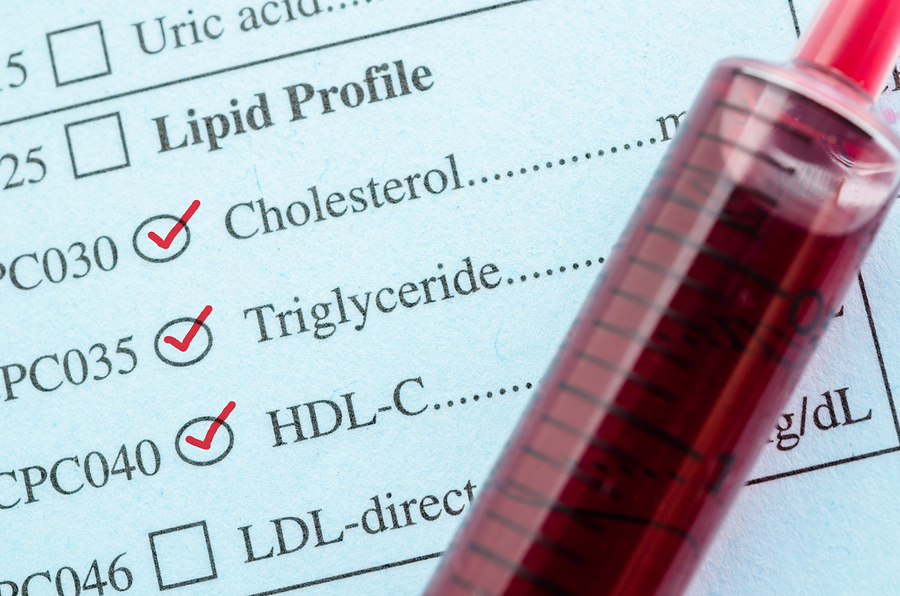 According to the Centers for Disease Control and Prevention (CDC), most people have their cholesterol levels checked because they believe cholesterol is bad, it makes them ill, clogs their arteries, and causes heart disease. They believe cholesterol is a bad word. If it is elevated, they need to take a medication, such as a statin drug, to restore normal cholesterol levels.
According to the Centers for Disease Control and Prevention (CDC), most people have their cholesterol levels checked because they believe cholesterol is bad, it makes them ill, clogs their arteries, and causes heart disease. They believe cholesterol is a bad word. If it is elevated, they need to take a medication, such as a statin drug, to restore normal cholesterol levels.
Unfortunately, the average person’s knowledge of cholesterol is incorrect. This often leads to tests that are useless, habitual use of medication, and poor dietary choices. Let’s get into some of these myths and debunk them, one by one.
MYTH 1: All Cholesterol Is Bad
No cholesterol is “bad” as the body does not make anything that is “bad.” However, some types of cholesterol are better than others. There are two main types of cholesterol that people are aware of – HDL and LDL. HDL is known as the heart healthy cholesterol. It brings LDL back to the liver where it can be broken down and removed from the body.
LDL cholesterol is the one that has a bad reputation. True, a disproportionate amount of LDL can lead to clogged arteries and an increase risk of heart attack. However, a healthy balance of HDL to LDL will prevent this from happening.
In reality, cholesterol is essential for good health and sits at the top of the body’s hormonal cascade as the building block of all hormones. This is why the liver produces cholesterol. While disproportionate, high levels of cholesterol can lead to heart attack or stroke, low cholesterol can be just as damaging and may lead to hormonal imbalance, depression or even suicide.
MYTH 2: High Cholesterol Foods Increase Your Cholesterol
Even the government has realized that this isn’t true. Last year, the U.S. Dietary Guidelines were changed to reflect that there is no direct correlation between dietary cholesterol consumption and blood cholesterol. There is no longer a recommended limit on cholesterol consumption.
Foods such as eggs, coconut and avocado are considered high in fats and cholesterol. However, they are heart healthy, HDL healthy fats. These foods will not negatively affect your cholesterol like a double bacon cheeseburger or deep-fried Oreos. Hydrogenated fats, processed foods and refined sugar are still bad for you. But high dietary cholesterol does not cause high cholesterol levels in blood.
In reality, a cholesterol imbalance is caused by a number of factors, including lack of exercise, stress levels, age, family history, and poor diet. For example, if you have a sick, toxic liver and high stress, the liver will produce more cholesterol. All of this data must be taken into consideration before you know the complete story of why you have high cholesterol, and before the decision is made to take medication or try another approach.
MYTH 3: There is One Healthy Cholesterol Level that Applies to Everyone
The number of factors involved in determining the cause of high or low cholesterol explains why the healthy level cholesterol will vary from person to person.
Also, it’s no longer only the number of cholesterol milligrams per deciliter of blood (mg/dL) that needs to be tracked. Today, we’re looking more at the size of cholesterol particles, particularly LDL and VLDL. Bigger particles are actually better. It’s the smaller, denser particles that can get into the lining of arteries and cause damage.
Imagine the difference between throwing a basketball and throwing a pebble. The ball will bounce and the pebble will stop where it is thrown. This is a great way to understand the effect of large versus small LDL particles in your arteries.
There are also a number of other tests and measurements that paint a more accurate picture of your health.
MYTH 4: If I Have High Cholesterol, I Need to Be on Medication
Statin medication should not be prescribed without first taking an integrative, functional medicine approach to treatment. More often than not, proper cholesterol levels can be normalized through a customized exercise program and the right nutrition protocols.
Medication should be a last resort, not a first instinct. In the case of statins, they can actually worsen heart health and deplete the body of Coenzyme Q10, which has many critical roles in the human body as an energy producer and antioxidant.
The Bottom Line
Simply driving down cholesterol levels is not the answer. Education is the answer. We need to understand what cholesterol is, what causes cholesterol imbalance, and what a blood test is really telling us. Then we need to work with a doctor of functional medicine and follow an integrative treatment approach that takes all relevant factors into account.